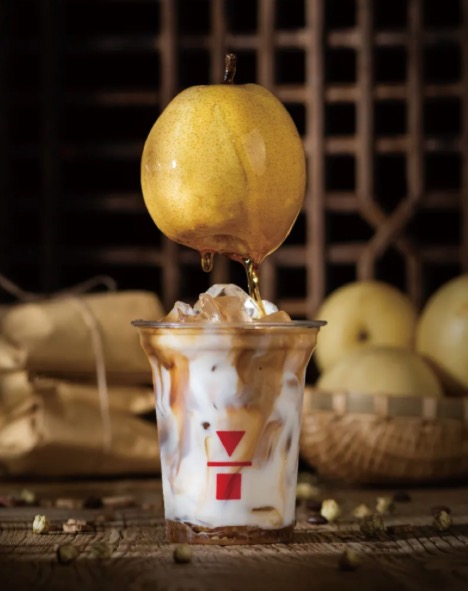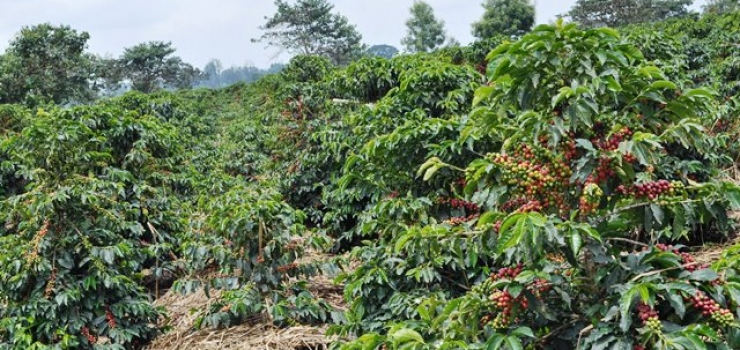Where did Nestl é come from? which companies did it acquire? Nestl é acquires Bountiful Core Brand
On April 30th, Nestl é, the world's largest food company, announced the acquisition of the core Bountiful brand.
It is understood that the deal is to buy the core brand of The Bountiful Company, a maker of nutritional supplements, from private equity giant KKR for $5.75 billion, which is expected to be completed in the second half of 2021.

In addition, Nestl é said: the assets acquired include vitamin and nutrition brands such as Nature's Bounty, Solgar, Osteo Bi-Flex and Puritan's Pride, excluding Bountiful's sports and active nutrition brands.
Greg Behar, chief executive of Nestl é Health Sciences, said: "this acquisition complements our existing health and nutrition portfolio in terms of brands and channels."
In addition to acquiring the core Bountiful brand, Nestl é announced two major investments in April.
On April 27, Nestl é upgraded its business by investing in Qingdao Laixi, including supplementary food for infants, coffee, dairy products and so on.
Among them, coffee is the engine of Nestle's strategic growth, and the data show that Nestle's market share of ready-to-drink coffee is more than 50%.
In view of this, Nestl é has also launched a series of ready-to-drink products in its Laixi investment project, such as the management department of Nestle Coffee ready-to-drink series officially settled in Qingdao, at the same time, Nestl é has set up an innovation center for the development of ready-to-drink coffee, liquid dairy products and other liquid products, and will further expand local milk procurement to support business development needs.

In addition, the Nestle Coffee Plan proposed by Nestl é in 2010 has currently invested 350 million Swiss francs, which includes a series of goals to optimize Nestle's coffee supply chain. Nestle coffee is expected to be supplied back to farmers by 2025. And in the coffee category to achieve 100% responsible procurement, of which data show that Nestl é coffee purchased 649000 tons of coffee beans in 2020 alone.
On April 2, Nestl é, the world's largest food company, announced an additional 230 million yuan for the high-end pet food business, while in the past two years, Nestle's total investment in Tianjin has exceeded 1 billion yuan. the purpose of adding another 230 million yuan is to further enrich Nestl é's food products in China.
Nestl é is one of the first foreign enterprises to come to China. It has 20 years of local production experience in China. At present, China is the second largest market for Nestl é in the world. According to relevant statistics, Nestl é operates 23 factories in China.
In the coffee business, on the first day of Singles Day in 2020, Tmall, the overseas flagship store of Nestle Coffee business, ranked first in the coffee category. Starbucks Home Coffee, operated by Nestl é, grew 136 per cent on the Tmall platform and 455 per cent on JD.com. Last year, Nestl é opened nearly 900 Starbucks stores in China, and Nestl é expects the global coffee market to grow by 4 to 5 per cent in the next few years.
Judging from Nestl é's recent actions, Nestl é is accelerating its layout of the Chinese market.
* Image source: Internet
Important Notice :
前街咖啡 FrontStreet Coffee has moved to new addredd:
FrontStreet Coffee Address: 315,Donghua East Road,GuangZhou
Tel:020 38364473
- Prev

Chinese boutique trend coffee mathematician Coffee launched health pear latte and pear ointment latte
On April 27, Coffee, a new coffee chain founded in Suzhou, joined hands with Li Liangji, a century-old traditional Chinese medicine brand in Gusu, to launch health-preserving coffee. This health-preserving coffee launched by mathematicians and Li Liangji is a new pear series with the same origin of medicine and food, which includes pear latte and pear ointment latte. Coffee can also be combined with pears, which must be another novelty.
- Next

Annual output of Kenyan coffee the Kenyan coffee industry is showing signs of continuous decline
Professional coffee knowledge exchange more coffee bean information Please pay attention to the coffee workshop (Wechat official account cafe_style) in recent years, due to low rate of return and poor management, coffee production in Kenya has been declining year by year, the coffee industry is showing a declining trend. According to the latest data from Kenya's National Bureau of Statistics, Kenya's coffee exports fell to 2021 from 2639 metric tons in January 2020.
Related
- Unexpected! Ruixing Telunsu lattes use a smoothie machine to foam milk?!
- % Arabia's first store in Henan opens into the village?! Netizen: Thought it was P's
- Does an authentic standard mocha coffee recipe use chocolate sauce or powder? Mocha Latte/Dirty Coffee/Salty Mocha Coffee Recipe Share!
- What is the difference between Vietnam egg coffee and Norway egg coffee? Hand-brewed single product coffee filter paper filter cloth filter flat solution!
- What is the difference between sun-cured and honey-treated coffee? What are the differences in the flavor characteristics of sun-honey coffee?
- How to make Italian latte! How much milk does a standard latte use/what should the ratio of coffee to milk be?
- How to make butter American/butter latte/butter Dirty coffee? Is hand-brewed coffee good with butter?
- Is Dirty the cold version of Australian White? What is the difference between dirty coffee/decent coffee and Australian white espresso?
- Relationship between brewing time and coffee extraction parameters How to make the brewing time fall to 2 minutes?
- Got entangled?! Lucky opens a new store, Mixue Ice City, and pursues it as a neighbor!

